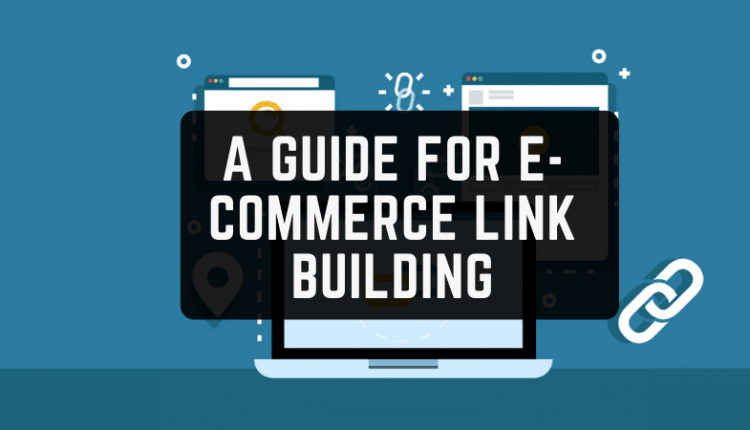E-commerce link building is an essential aspect of any online business. It involves acquiring links from other websites to your online store, which can boost your website’s authority and drive more traffic. However, not all link-building strategies are created equal. Some can do more harm than good to your e-commerce website’s reputation and search engine rankings.
E-commerce Link Building: The Key to Driving Success for Online Retailers
E-commerce has revolutionized the way people shop, and with the rise of online shopping comes the need for effective digital marketing strategies. One such strategy is e-commerce link building, which entails developing inbound links to your online store from other relevant and trustworthy websites.
In simpler terms, link-building is the process of getting other websites to link back to yours. For e-commerce websites, link-building helps increase visibility, and credibility, and ultimately drives more sales and revenue.
Link-building for e-commerce websites requires a unique approach, as this industry operates on a different scale than other digital businesses. An effective link-building strategy for an e-commerce website is one that focuses on generating quality links that lead to conversions.

Building a Solid E-commerce Link Building Strategy
For e-commerce websites, building a solid link-building strategy starts with identifying high-quality websites that are relevant to your business. Such websites might include blogs, review sites, social media platforms, or even online directories.
Once you’ve identified these sites, you can start to develop a relationship by engaging with their content. This may include leaving comments, sharing posts, or even offering to guest post on their platform.
The goal is to develop a connection with these sites so that they’re more likely to link back to your e-commerce website.
However, it’s important to note that not all links are created equal. In fact, some links can be harmful to your website’s ranking. That’s why it’s crucial to focus on generating quality links that drive traffic and sales.
Building Quality Links
When it comes to link-building for e-commerce websites, there are two types of links to consider:
1. Internal links – These are links that lead to other pages within your e-commerce website. By linking to other relevant products or pages, you can improve the user experience and keep visitors on your website for longer.
2. External links – These are links that lead back to your e-commerce website from other websites. These links are more difficult to generate, but they can significantly impact your website’s visibility.
To generate quality links, it’s essential to create quality content that provides value to your target audience. This might include blog articles, product descriptions, or even social media posts.
By creating high-quality content, you increase the chances that other websites will link back to your website. Additionally, high-quality content also improves your website’s internal linking as well.
Here are some do’s and don’ts of e-commerce link building that can help you to drive more traffic to your online store.
Do’s:
1. Create High-Quality Content: Content is a critical aspect of e-commerce link building. Your website’s content should be informative, engaging, and shareable. When you publish high-quality content, other websites will be more likely to link to it. This means that you should invest time and resources into creating blog posts, infographics, and videos that will resonate with your target audience.
2. Build Relationships with Other Websites: Instead of focusing solely on acquiring backlinks, you should aim to build relationships with other websites in your niche. This means engaging with other website owners and influencers on social media, commenting on their blog posts, and collaborating on content. Building relationships can help you to acquire natural backlinks over time, which are valued by search engines.
3. Invest in Guest Posting: Guest posting involves writing content for other websites in exchange for backlinks. This is an effective link-building strategy for e-commerce websites that want to establish themselves as thought leaders in their industry. When you guest post on high-authority websites, you can attract their audience to your online store.
4. Optimize your Anchor Text: Anchor text is the visible, clickable text that appears in a hyperlink. You should optimize your anchor text by using relevant keywords or phrases that describe the content of the linked page. This can help search engines to understand the context of your website’s content.
Don’ts:
1. Use Black Hat Techniques: Black hat link-building techniques are methods that violate search engine guidelines and can result in your website being penalized. Examples of black hat techniques include buying links, keyword stuffing, and cloaking. These techniques can provide short-term gains, but they can harm your e-commerce website’s reputation in the long run.
2. Participate in Link Exchanges: Link exchanges involve trading links with other websites. This is a risky link-building strategy because search engines can detect and penalize websites that engage in this practice. Instead of participating in link exchanges, focus on creating high-quality content that will attract natural backlinks.
3. Ignore Mobile Optimization: Mobile optimization is critical for e-commerce websites that want to attract and retain mobile users. Mobile users comprise a significant portion of online shoppers, and their numbers are growing every year. You should ensure that your website is mobile-friendly and that all your content is accessible on mobile devices.
4. Neglect Local SEO: If you have a physical retail store, neglecting local SEO can cost you a lot of business. You should create a Google My Business profile and optimize it for local searches. This means including your store’s name, address, and phone number on your website and other online directories.
E-Commerce Link Building
In conclusion, e-commerce link building can help your online store to attract more traffic and drive sales. However, you should be cautious about the link-building strategies you use. Focus on creating high-quality content, building relationships with other websites, and optimizing your anchor text. Avoid black hat techniques, link exchanges, and neglecting mobile optimization and local SEO. By following these do’s and don’ts, you can build a strong link profile and establish your e-commerce website as a reputable online business.
SEOArmy provides Link-building among other SEO services to help grow your business and take it to the next level. Book a call if you are interested in further explanations of e-commerce link-building. We would love to hear from you!




